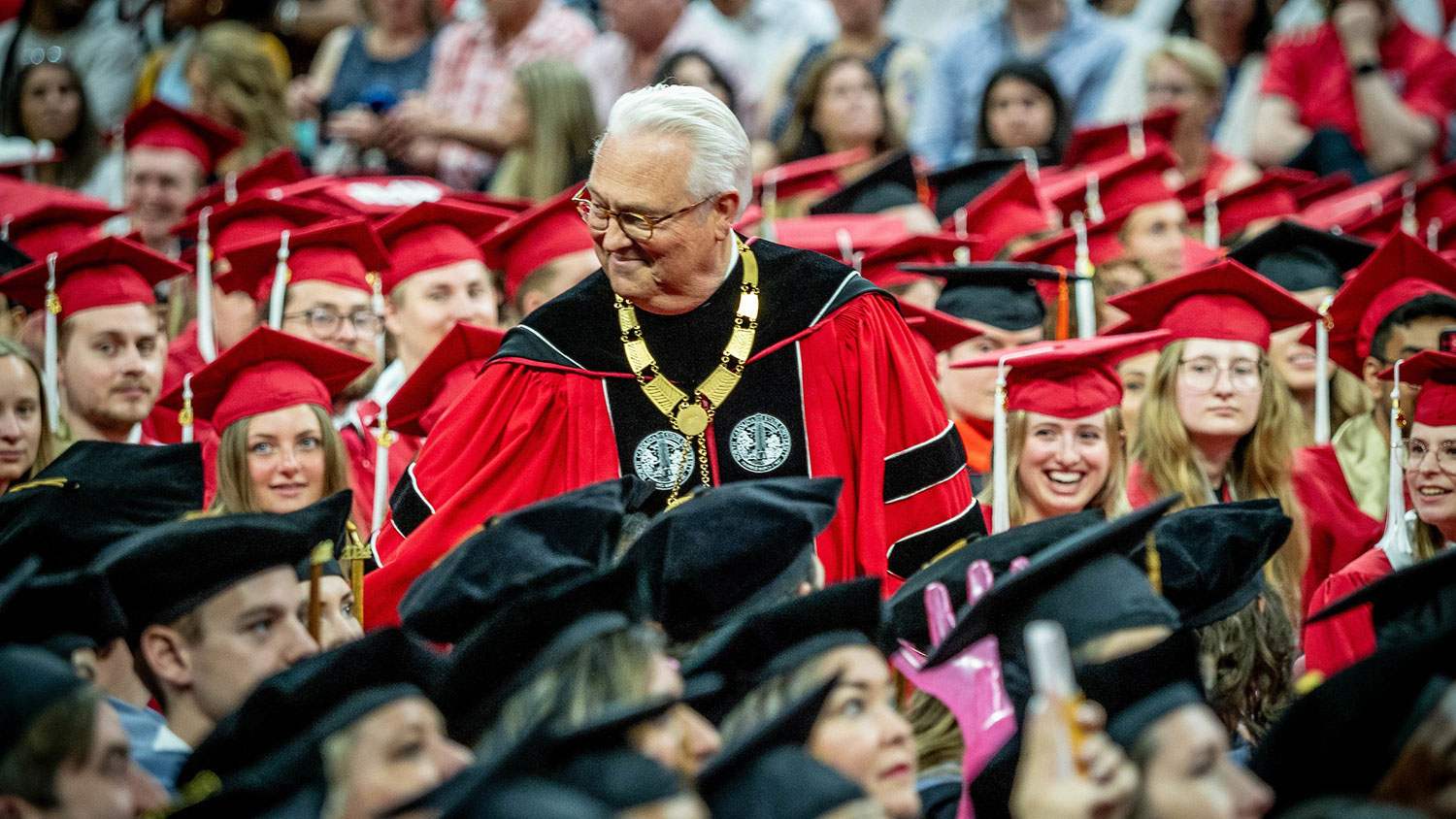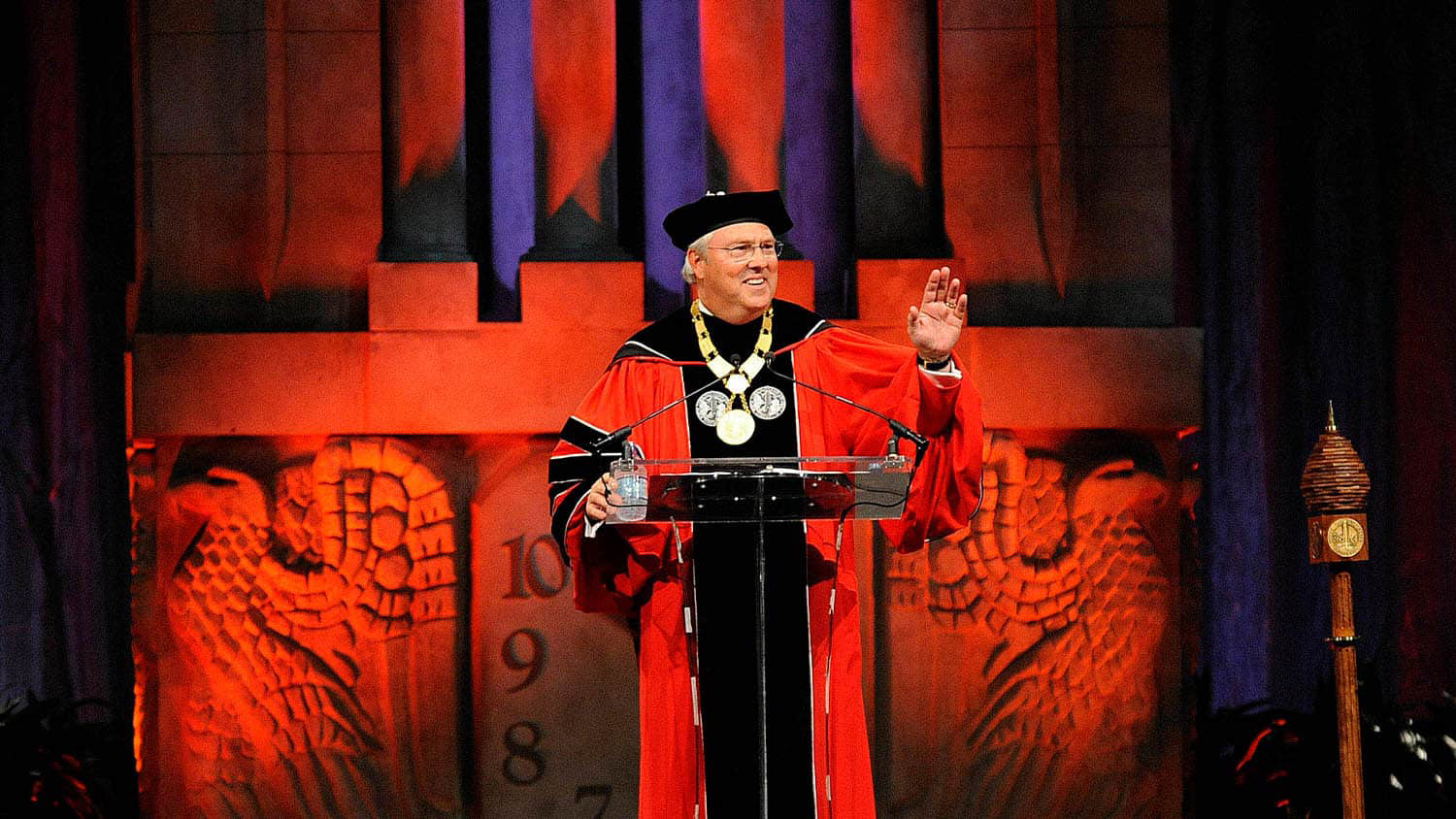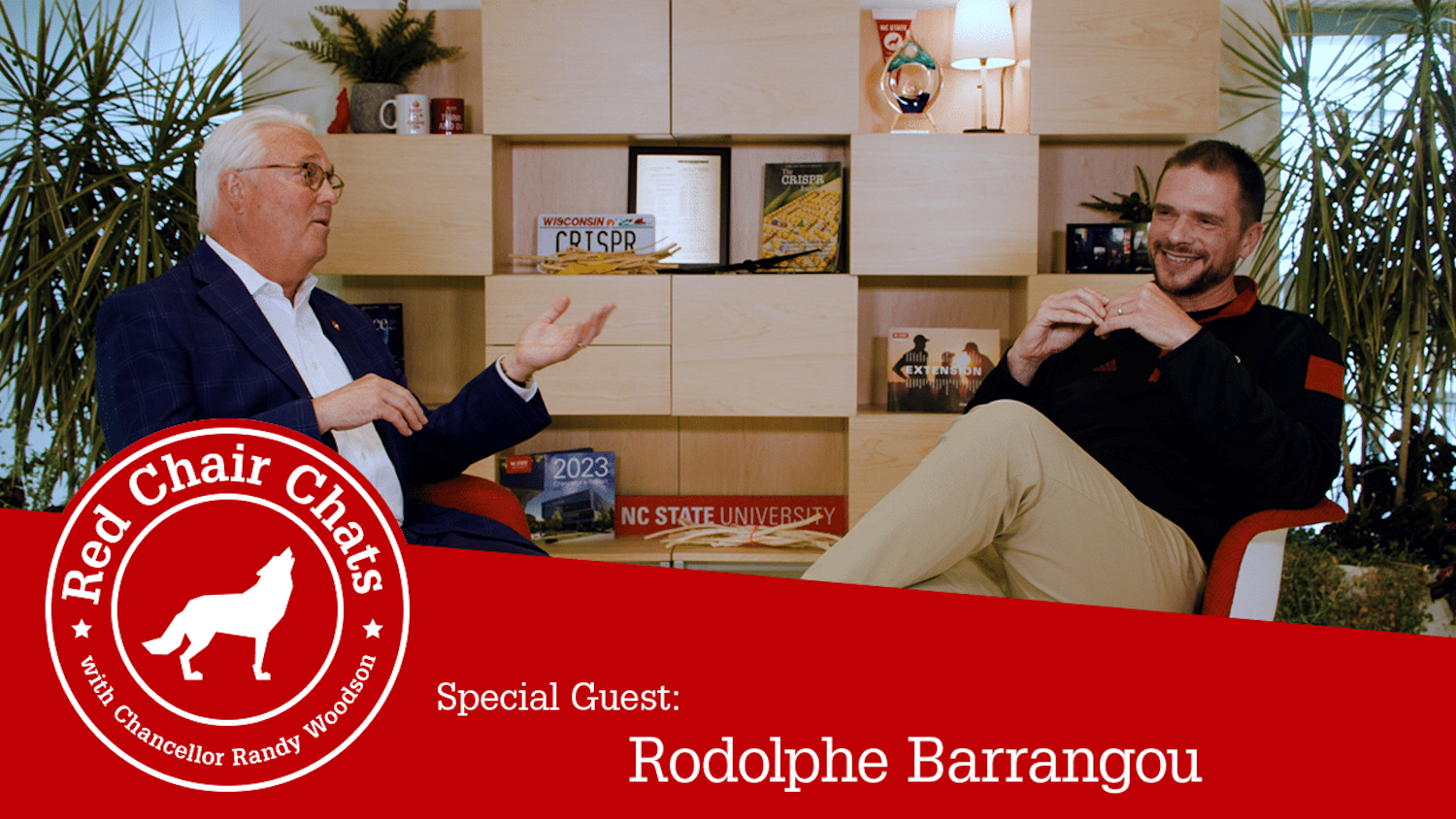Through the Darkness to Shine a Light
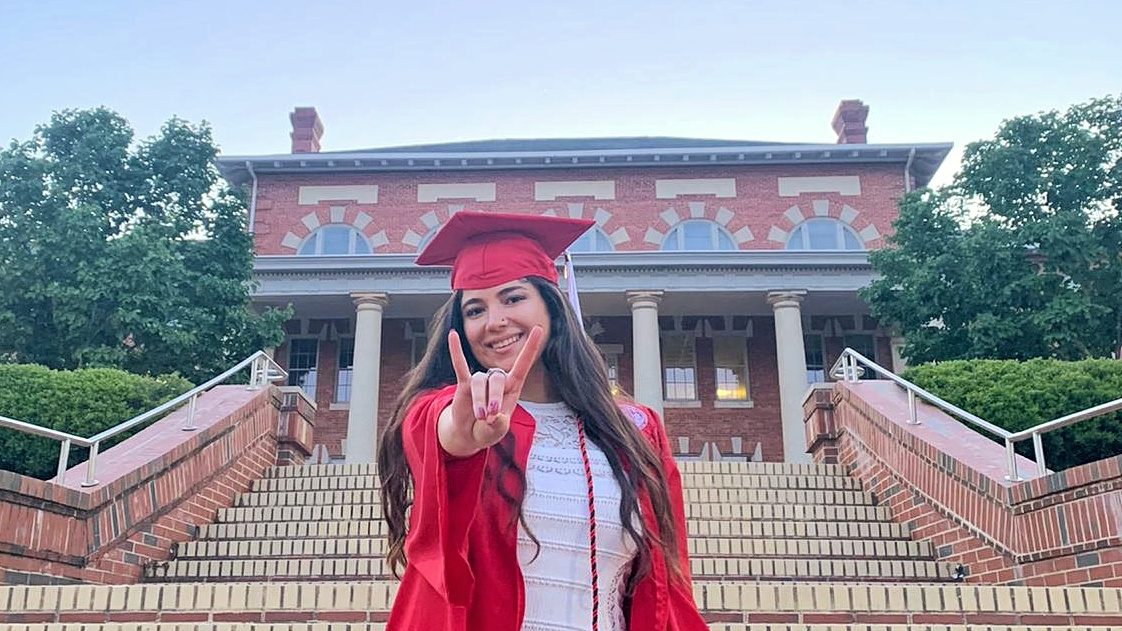
Graduation often sparks reflection.
Students finishing college pause to think about the moments — exhilarating, challenging and everything in between — that led to that milestone.
As she leaves NC State with her B.S. in biological and agricultural engineering, Esmira Poladova has more ups and downs to contemplate than most. She describes her five years since high school not as a journey — which sounds a tad too smooth and direct — but as a crazy adventure, or maybe a wild ride.
To become the first in her family to earn a degree, Poladova passed through dark tunnels, persevered and, as an NC State senior, even became an advocate for other underresourced students.
“Graduation’s a huge moment of achievement,” she said. “It means a lot when you’re the first and so much is riding on it, to be able to say you did it.
I made it. And as I get a little older and look back, I’ve realized how many people had to open doors for me to be able to say that.
“I’ve realized more than ever how much we all need each other. Truly, no one is an island.”
Poladova’s story begins on the other side of the world. She was born at the crossroads of western Asia and eastern Europe in Baku, in the Republic of Azerbaijan, which became independent in the early 1990s after the fall of Soviet Union. When she was a very small child, her parents fled the mountainous region’s violence and waves of ethnic cleansing; her father sought asylum in the United States, and she and her mother followed a couple years later.
They started from scratch. They knew no one, spoke no English at first and were unable to visit extended family for over five years. Poladova remembers the theme of that time as “sink or swim, with sinking never being an option.”
The family, which grew to include her brother, now 14, moved around a lot as her parents sought work. She spent her final growing-up years in Charlotte.
Poladova was always good at math and science, and loved solving puzzles. From a fairly young age, she was intrigued with becoming an engineer. She would talk with her father about problems in the world and how people might solve them, and about their dream that she’d go to college.
“The idea that the world can be better, and I want to be part of that — engineering just seemed like a natural thing to study,” Poladova said. “We talked about all of that a lot.”
But one night when she was 11, her dad went to his job driving a taxi and never came home.
He was robbed and killed not far from his own front door. As Poladova describes it, her family immediately went from having little, to having nothing.
Both their close-knit Russian community and the broader community rallied around them.
With the help of her mother’s faith and diligent savings, her own high school job at a dry cleaners and a package of financial aid, Poladova made her way to NC State despite never getting the chance to visit campus before applying.
Getting into college was just the first hurdle. She arrived with no backpack, supplies or laptop, and briefly, she slept on her apartment floor. The struggle to adjust to higher education, with no one in her family able to help navigate questions, and financial anxieties often left little energy for chemistry or physics. As the debt on her credit card grew, she felt lost in the shuffle.
The lowest point came during the first semester of her sophomore year.
Poladova’s grade-point average fell just below what she needed to keep a critical merit scholarship. Her chances of being accepted into a specific engineering major seemed scant. I came here to be an engineer, she thought. What am I going to do if I can’t be one?
Deeply depressed and worried that if she failed her classes, she’d have to pay back financial aid, she ended up at the Counseling Center. A caring psychologist there helped her through the withdrawal process.
Poladova figured she’d never return to NC State.
“I called my mom and said I’m not going to make it. I don’t want to go to college any more,” she said. “Mom was like, ‘OK, well, I still love you.’ What? It seemed so surprising that she didn’t try to talk me out of it. It was like suddenly, that took off all the pressure I had put on myself — pressure to make money to help my mother and brother, pressure to have a career instead of a job.”
She did return. People at the university, she said, made sure she’d find her place.
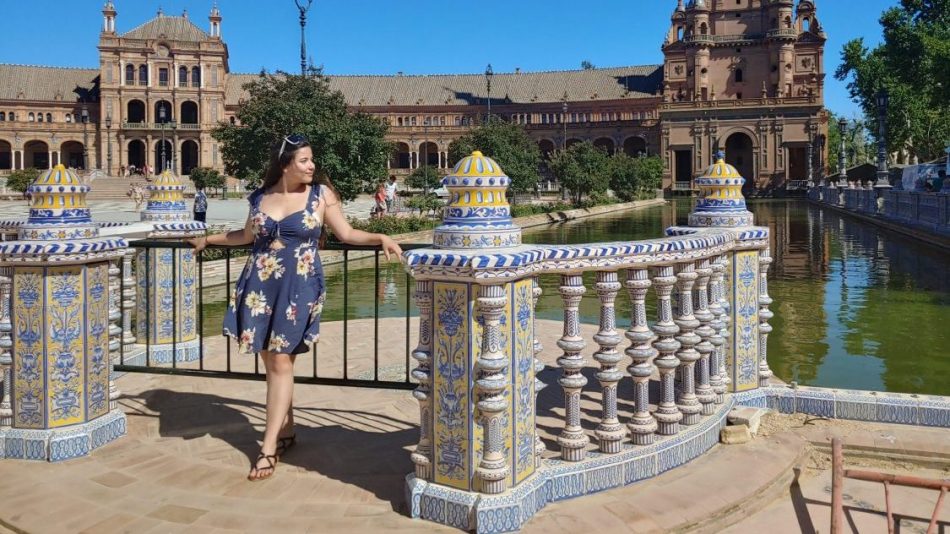
There was the entire, supportive team at TRIO — a federally initiated program providing academic, career and personal support for underresourced and first-generation undergraduates that she became more involved with as her college career continued — that she can’t imagine NC State without. No questions asked, they vouched for her throughout her academic probation appeal.
Then there was the reaction of David Parish, an assistant dean in the College of Engineering, when she sat in his office one day after her reinstatement. She told him she really, really wanted a chance to be an engineer, could he please review her CODA (Change of Degree Application). He encouraged her and suggested she explore the Department of Biological and Agricultural Engineering — a highly regarded, affiliated program administered by the College of Agriculture and Life Sciences that he said considered slightly lower GPAs only because it enjoyed less public awareness than other disciplines. She could do challenging, important work there.
Support Our Students
“He changed my life,” said Poladova, who headed straight to Weaver Laboratories for a conversation with Andy Hale, professor and undergraduate coordinator. “Cool,” was her almost immediate reaction as she learned more about how the discipline mimics natural processes to solve engineering problems in topics like water, sanitation, hygiene and pollution. She’d found a perfect fit, where she could prove herself and excel with her affinity for biology and ecology.
The rest, one might say, is history. She seized opportunities, like answering an email to become an undergrad research assistant gathering samples statewide to monitor water quality. She sought her own, such as rearranging her entire academic plan to enroll in a stormwater class offered every other spring by Bill Hunt, William Neal Reynolds Distinguished University Professor and Extension Specialist.
Hunt ended up recommending her for an internship with Hazen. That experience in turn led her to an internship at McAdams – the firm where she’ll now work in Charlotte as an alumna, doing water resources engineering.
“All that kindness from people — it let me know things could be OK, and I wasn’t a massive failure; I could succeed,” she said.
Poladova studied abroad in Spain for a summer, traveling in France and Morocco and camping in the Sahara Desert. She has attended conferences on international development, agriculture and ethical leadership. She completed a minor in science, technology and society.
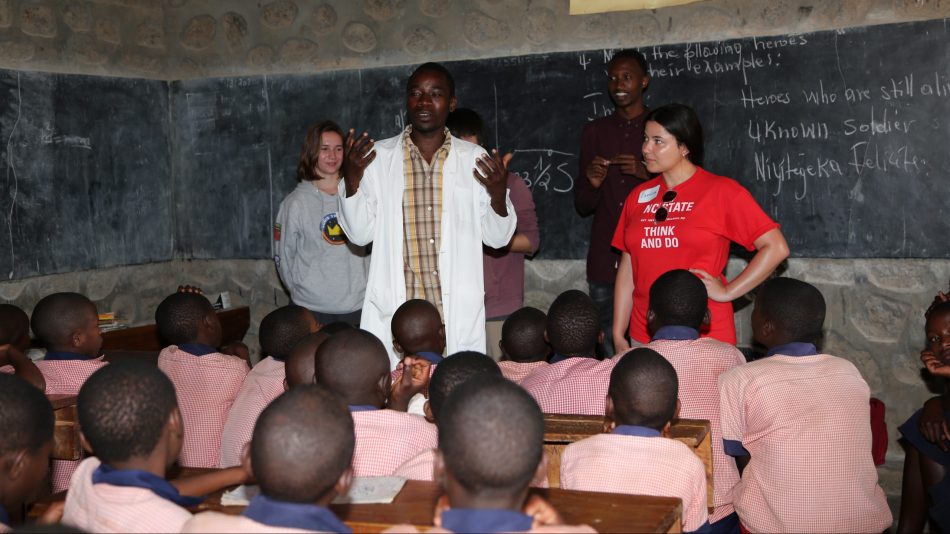
In March, she completed a nine-day Alternative Service Break in Rwanda with the Office of Leadership and Civic Engagement and the Women and Minority Engineering Programs, returning just before the COVID-19 pandemic shut down travel. Teaching STEM and problem-solving skills to children there was life-changing and, like a project she worked on for a school in Sierra Leone through NC State’s student chapter of Engineers Without Borders, deepened a passion to continue such service.
For most of her time at NC State, Poladova rarely let others know about her challenges outside the classroom.
But in the fall, through TRIO, she had the chance to speak at Red and White Night, NC State’s largest annual philanthropy event. She shared her experiences, helping advocate for more resources and need-based support for students, such as the new Extraordinary Opportunity Scholarship Initiative.
“Extraordinary opportunity,” she told the audience, “means that someone like me can overcome tragedy to persevere. It means that if we’re intelligent, ambitious, passionate and resourceful enough to be at NC State, we will be empowered to do incredible things, no matter where we come from. It means to dream big.”
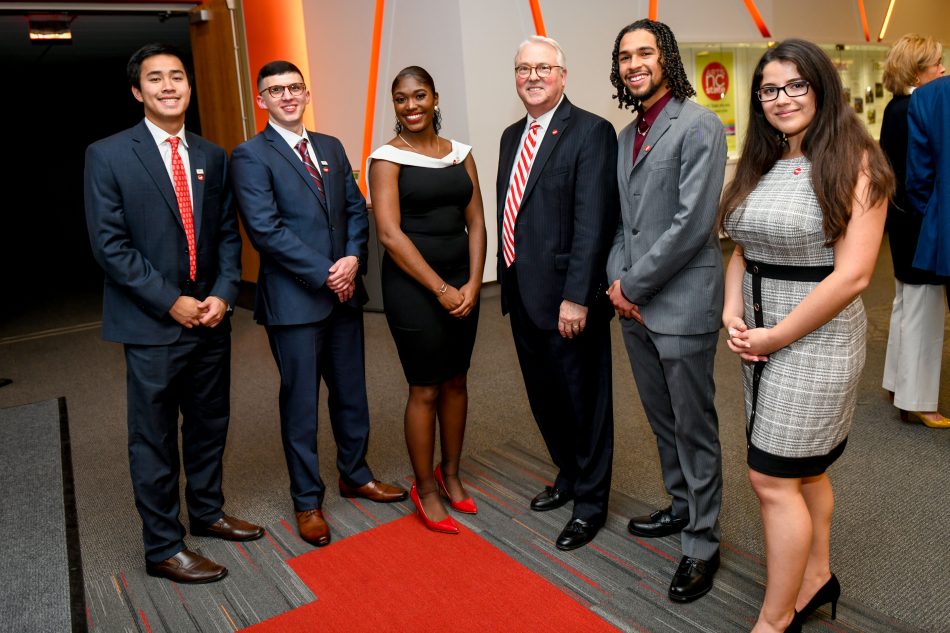
Public speaking that once seemed terrifying became affirming. She participated more in forums, workshops and interviews, sharing her story, raising awareness of student needs, and mentoring (and inspiring) others. She took pride in successfully lobbying her department to include information about Pack Essentials on every syllabus.
“When you help people who are striving to make a better life, you’re really investing in an incredible population,” Poladova said. “The return is more than you can imagine. People with tough backgrounds are so willing to help others, too, because they know the challenges, and they know how the smallest contribution or act of kindness can mean so much. I’m so grateful for all my opportunities.”
Often bullied as “different” as a child, at NC State she realized the importance of supportive relationships and found a commonality in “who you’re becoming, not where you came from.” She is excited about pursuing her PE license, helping her brother when he gets ready for college and providing security for her mother.
Because of the pandemic, Poladova’s senior year ended with a whisper rather than a bang. For years, imagining her commencement buoyed her through stress, fatigue and wanting to give up. She’d picture her family there, and think about what her stoic father might have said and done.
She is grateful to have celebrated the milestone graduation weekend with a couple of close friends, a little champagne and photo shoots around campus. She can’t wait to get back to Charlotte to celebrate with her mother and brother — and some of her mom’s Azerbaijani cooking.
“Whenever they’re able to have the big ceremony, you bet I’ll be there,” she said
Read more about our extraordinary students and alumni who have benefited from need-based support.
- Categories:
